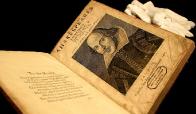'The Premonition' Review: A Pandemic of Experts
By: Barton Swaim (WSJ)



It is an article of faith among America's educated elite that the United States is uniquely bad at solving big problems. Urban sprawl, economic inequality, nuclear proliferation, environmental degradation, whatever—the American intelligentsia can be counted on to conclude that other developed nations handle these perils more judiciously than the U.S. does. You wonder how the country hasn't collapsed under the weight of its own incompetence.
Michael Lewis's "The Premonition: A Pandemic Story" is a book-length expression of this belief. It is the story of a loosely connected group of doctors, scientists and public-health experts whose research led them to see that the novel coronavirus raging in Wuhan, China, in early 2020 was far more dangerous than U.S. health officials and political leaders realized. This global group of "Wolverines," as they came to call themselves, tried to warn the U.S. government, but nobody listened in time.
"In February 2021," Mr. Lewis explains in the book's introduction, "The Lancet published a long critique of the U.S. pandemic performance. By then 450,000 Americans had died. The Lancet pointed out that if the COVID death rate in the United States had simply tracked the average of the other six G7 nations, 180,000 of those people would still be alive." If only the experts had been listened to, the book implies, these "missing Americans" would be with us still.
The article Mr. Lewis is referring to is a cringe-making leftist rant. (A sentence taken at random: "Donald Trump stirred up the underlying racial animus of US society to deflect attention from policies that abet billionaires' accretion of wealth and power.") The article, in any case, doesn't claim that 180,000 people could have been saved by more robust public-health interventions in early 2020 but that those deaths are mostly the result of Americans' poor health. That the U.S. death rate, even so, is lower than that of the U.K. and Italy and nearly equal to that of France—all G7 nations—rather complicates Mr. Lewis's breezy thesis.
It is amazing to me that intelligent people in 2021 can survey the past year and conclude that some alternative set of non-pharmaceutical interventions would have made an appreciable difference in the spread of this magnificently resilient virus. But many such people do believe that, including the author of this book and its ostensible heroes. One of those heroes, an accomplished hospital administrator named Carter Mecher, drew up a national pandemic response plan for the George W. Bush administration. The key to stopping dangerous pathogens, he came to believe as he studied pandemic modeling, was closing schools.
So fervently did Mr. Mecher hold this view that he regrets President Obama’s decision not to close schools during the 2009 swine-flu scare—despite the fact that, as he acknowledges, closures were in that case unnecessary. “It’s like someone who looked down at their phone while driving and drifted on to the shoulder but didn’t hit anything,” he tells Mr. Lewis. “The lessons aren’t as strong and defined. Had that person hit a mailbox or ended up on a ditch . . . they probably wouldn’t want to get into the driver’s seat again for a long, long time.” That analogy assumes that attending an American school in the spring of 2009 was intrinsically dangerous. The point is, it wasn’t.
Mr. Lewis presents his book as the natural follow-up to “The Fifth Risk” (2018), a book about the ways in which the U.S. government faces existential threats like nuclear war, but “Premonition” is more closely modeled on “The Big Short” (2010), about a few Wall Street traders who made truckloads of money by betting against the housing market before the crash of 2007-08. The difference is that the main characters of “Premonition,” while they may have grasped the seriousness of Covid-19 before other public-health experts, were just as wrong as everybody else in their field. More so, actually—they wanted a national shutdown and national school closures. The supposition that an earlier and stricter shutdown would have appreciably suppressed the virus may be a comforting counterfactual but bears no relationship to observable reality. The shutdowns did not save lives. The idea that they would have done so if only they had been imposed earlier—even supposing such a thing were politically feasible—is a species of historical fiction.
Here is a point that Mr. Lewis’s heroes show no awareness of grasping: that the United States is a big unruly country in which people are accustomed to going where they please and don’t care for government authorities telling them what to do based on poorly understood “data.” One of the Wolverines, a public-health official in Santa Barbara County named Charity Dean, appears to believe that any sign of a dangerous contagion permits health authorities to assume dictatorial powers. She tells Mr. Lewis that in early 2020 California should have closed its borders “until it figured out exactly how much virus was circulating, and where” and that the U.S. should follow Thailand’s example and require “anyone entering the country to wear a GPS wristband” and so enable the authorities to know who’s disobeying quarantine rules.
Mr. Mecher and other Wolverines take great pride in having convinced the Centers for Disease Control in 2006 that shutdowns and school closures would have prevented deaths in 1918 if only they had been imposed earlier. It’s a fine topic of debate but irrelevant to the circumstances of 2020. The 1918 flu massacred young people with sturdy immune systems, as Covid-19 does not, and there was no asymptomatic and thus invisible spread in 1918, as there is now. On the evidence of Mr. Lewis’s book, this “rogue group of patriots . . . working behind the scenes to save the country” never considered these and many other obvious points. Nor, it seems, did they worry much about the waves of unintended consequences resulting from their favored policies—a lost year of education, increased despair and suicide, economic destruction, social disharmony.
Much has gone wrong in America since the spring of 2020, but thank God we were saved from this rogue group of patriots.

Tags
Who is online
113 visitors


The lesson of the pandemic is to always be wary of the left. Even now with all of the science to back up sending children back to school, Joe Biden is still taking his orders from the corrupt teachers unions who want to drag this thing out as long as possible. Let us simply thank our lucky stars for Operation Warp Speed.
The Book is:
THE PREMONITION: A PANDEMIC STORY
By Michael Lewis
Norton, 304 pages.